Tuesday, 1st–Received orders to cook four days’ rations and be ready to move at a moment’s notice. We had everything in readiness when late in the evening the order was countermanded.
American Civil War Chronicles
War Diary of Luman Harris Tenney.
July 1, 2022
1st. Reveille at three A. M. Started at 4 A. M. Moved 8 miles to where the command from the other way was, at Round Grove, where Coffee had camped. Indians in their natural state encamped there too. Laughable sight. Pleasant day. Cooler and grass good. Saw the Oberlin boys. Letter from Fannie. Rested. Wrote in the evening.
Through Some Eventful Years
July 1, 2022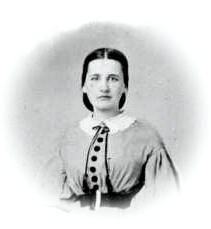
July 1st, 1862.—Mother would like to omit the 4th of July festivities, but Father says the black folks must not be defrauded of their rights, so the preparations for the barbecue go on as usual. I cannot see that the war has made them a bit different unless it has made them more particular to do their work well. I believe we can trust our servants for if they had any unkind feelings they would certainly show it now. I am afraid my new pupils will not learn as rapidly as Frances. I am trying to teach them to read and write at the same time as she was taught. John tried a while on his slate and then he said, “I could do better if I had a pinter.” I thought he meant if I pointed out the letters to him but when that was tried he explained what he wanted. “I ain’t a wantin’ nobody to pint places fur me, I wants a pin-pinter lak doctor is got.” He had seen Father take his gold pen from his pocket to write with and it looked good to John’s eyes. Nathan draws frogs over his slate and David will not look at either book or slate, but my copy-book says “Patience and perseverance accomplish all things.”
Three days of each week are devoted to sewing for the soldiers. Often we sew steadily for days at a time, that is when we are getting up a special box to be sent by some soldier, who has been on a visit home and is returning to camp. Cousin Henry Bradford will take the box we are making ready now, he is a Major and certainly looks handsome in his beautiful uniform, just a single star on his collar and chevrons on his sleeves.
When we were at Old Point Comfort in 1857, I thought the blue uniforms with the gold epaulets were splendid; I wonder now how I ever liked them. Brother Junius is in camp near Tallahassee, at a place called Six-mile Pond. The 5th Regiment came up from Palatka last night. They have been drilling since last August and lately they have been guarding the St. Johns river; now they are to go to Virginia very soon. Captain Bernard has brought his family to the neighborhood to stay with Uncle Tom while he is away; Cousin Tom’s family have been there for some time. Uncle Tom is the only man left on the place; his hair is as white as snow, his three sons and Captain Bernard are all in the army; that is the way all over the length and breadth of the land. We who live on plantations have the advantage of our city friends, for we have so many negroes around us to help in all ways and to raise provisions, both for the home and for the army. We are entirely cut off from the rest of the world and if these things could not be raised we would be obliged to starve. So much for the blockade.
Susan Bradford is 16 years old when this entry was made.
A Diary From Dixie
July 1, 2022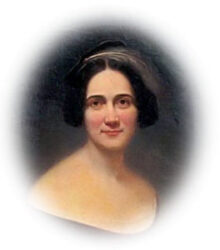
July 1st.–No more news. It has settled down into this. The general battle, the decisive battle, has to be fought yet. Edward Cheves, only son of John Cheves, killed. His sister kept crying, “Oh, mother, what shall we do; Edward is killed,” but the mother sat dead still, white as a sheet, never uttering a word or shedding a tear. Are our women losing the capacity to weep? The father came to-day, Mr. John Cheves. He has been making infernal machines in Charleston to blow up Yankee ships.
While Mrs. McCord was telling me of this terrible trouble in her brother’s family, some one said: “Decca’s husband died of grief.” Stuff and nonsense; silly sentiment, folly! If he is not wounded, he is alive. His brother, John, may die of that shattered arm in this hot weather. Alex will never die of a broken heart. Take my word for it.
Journal of Surgeon Alfred L. Castleman.
July 1, 2022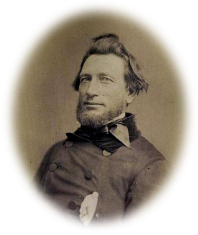
July 1st.–The march of last night was full of terrible anxiety and danger. We marched through an enemy’s country, pressed by them on all sides, and momentarily expected when passing through some dense pine forest, to be attacked from ambush and cut to pieces, without the chance of a chivalrous fight. This would be murder of the worst kind, and we feared it.
We reached the James River this morning, at Carters’ Neck, just below Malvern Hills, where the army expected to cross at once, and be again on ground of rest and safety. We were allowed three hours to cook, eat and sleep, and again we moved. But instead of crossing, we found ourselves marching directly away from the river, and the roar of artillery ahead told us of more work yet to be done. Our men, who had now for five days been limited to an average of two hours’ rest a day, pressed forward with an alacrity truly astonishing. After a march of about two miles, we halted on the slope of a hill which concealed us from an immense open plain stretching out in our front to Malvern Hills. Here was progressing a battle which will be famed in history, so long as battles are fought on earth. I doubt whether one so bloody, in proportion to numbers, or so obstinately contested, has been fought since the invention of gunpowder. Here Hooker, and Kearney, and Heintzleman, and, I hope, Porter, (though I have heard hints of his misbehaving) and Stevens, with others, have gained imperishable renown. Our Division was drawn up in line on the slope of the hill referred to, just so as to be concealed by its brow from the plain in front, yet so near as to perceive the advance of an enemy approaching over it, and here we lay all day in reserve, expecting our main body to be driven back on us, as their supports, and the eagerness with which our jaded and worn out troops now watched with a welcome for the foe from which we had been so long flying, is to me as astonishing as it is unaccountable. Here we felt secure, and here we have remained all day, chafing for a part in the deadly conflict going on so near us,
6 P. M.–The battle of Malvern Hill still rages, and what carnage. Hand to hand the fight goes on. The dead and the dying lie heaped together. Charge after charge is made on our artillery, with a demoniac will to take it, if it costs them half their army. Down it mows their charging ranks, till they lie in heaps and rows, from behind which our men fight as securely as if in rifle pits. Nearer and nearer approach their batteries, till the two lines of artillery are mingled into one, but pointing in different directions. In places the wheels of gun carriages of the opposing armies become nearly locked together, and the cannoniers leave their guns and sabre each other in a hand to hand fight. The slaughter is terrible, and to add to the carnage, our gun boats are throwing their murderous missiles with furious effect into the ranks of our enemy. By their shots huge trees are uprooted or torn into shreds, which whip the combatants to death. The combatants seem infatuated with excitement, and the very terror of the scene lashes them into a love of the conflict.
As twilight approaches, the noisy eloquence of battle becomes subdued; at 8 o’clock ’tis hushed, and the enemy is driven and routed. We are too much exhausted to pursue; and, relying on the assurance of our leaders that we are here secure, we at 9 o’clock stretch ourselves at length to take the full enjoyment of a long night’s rest, which our condition so pressingly demands.
“The city is sad, because of the dead and dying, but our hearts are filled with gratitude and love.”—Diary of a Southern Refugee, Judith White McGuire.
June 30, 2022
June 30.—McClellan certainly retreating. We begin to breathe more freely; but he fights as he goes. Oh, that he may be surrounded before he gets to his gun-boats! Rumours are flying about that he is surrounded; but we do not believe it—only hope that he may be before he reaches the river. The city is sad, because of the dead and dying, but our hearts are filled with gratitude and love. The end is not yet—oh that it were!
Rebel War Clerk
June 30, 2022
JUNE 30th.—Once more all men are execrating Gen. Huger. It is alleged that he again failed to obey an order, and kept his division away from the position assigned it, which would have prevented the escape of McClellan. If this be so, who is responsible, after his alleged misconduct at the battle of the Seven Pines?
A Confederate Girl’s Diary
June 30, 2022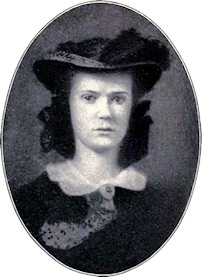
June 30th.
As a specimen of the humanity of General Butler, let me record a threat of his uttered with all the force and meaning language can convey, and certainly enough to strike terror in the hearts of frail women, since all these men believe him fully equal to carry it into execution; some even believe it will be done. In speaking to Mr. Solomon Benjamin of foreign intervention in our favor, he said, “Let England or France try it, and I’ll be ______ if I don’t arm every negro in the South, and make them cut the throat of every man, woman, and child in it! I’ll make them lay the whole country waste with fire and sword, and leave it desolate!” Draw me a finer picture of Coward, Brute, or Bully than that one sentence portrays! O men of the North! you do your noble hearts wrong in sending such ruffians among us as the representatives of a great people! Was ever a more brutal thought uttered in a more brutal way? Mother, like many another, is crazy to go away from here, even to New Orleans; but like the rest, will be obliged to stand and await her fate. I don’t believe Butler would dare execute his threat, for at the first attempt, thousands, who are passive now, would cut the brutal heart from his inhuman breast.
Downing’s Civil War Diary.–Alexander G. Downing.
June 30, 2022
Monday, 30th–The Eleventh Iowa was mustered for pay this morning. The men all looked fine–well and clean. None had on ragged clothing and few were absent from the regiment on account of sickness.
This ends June, with us in a good camp near Corinth, Mississippi.
War Diary of Luman Harris Tenney.
June 30, 2022
30th. Monday. Arose at 2:30. Marched at 4 A. M. Reached Cowskin at noon, and Rains’ camp at 3 P. M., which he had deserted the day before. Found the Indians before us encamped near by. Four companies, Ninth Rabb’s Battery and Second and Third Battalion came from Neosho. Nothing particular by the way. Noticed some places well remembered when Major Purington was down. Mustered for pay. Pitched tent loosely for the Major and Adjutant and made our beds outside. Thunderstorm camp up, tent blew over and such a time I never had before. Soaking wet all of us, but nearly the whole force fared the same way.
Robert M. McGill
June 30, 2022
Monday, 30th.—Mother and sister Mary came to-day.
(Note: picture is of an unidentified Confederate soldier.)
A Diary From Dixie
June 30, 2022
June 30th.–First came Dr. Trezevant, who announced Burnet Rhett’s death. “No, no; I have just seen the bulletin-board. It was Grimke Rhett’s. When the doctor went out it was added: “Howell Trezevant’s death is there, too. The doctor will see it as soon as he goes down to the board.” The girls went to see Lucy Trezevant. The doctor was lying still as death on a sofa with his face covered.
“This slight wound may be the means of saving Joe from greater danger…”
June 30, 2022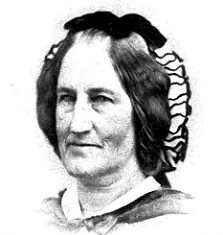
Jane Eliza Newton Woolsey to her son, Charles.
June 29 or 30.
Your last letter this moment come! We know not what to think. Dear E. [Eliza], what a heroine she shows herself. This slight wound may be the means of saving Joe from greater danger, as he must now lie by. Dear boy, how sad we feel about him. Our best love to him when you can. How very anxious we are to hear more. Thank you and G. for letters. We feel thankful it is no worse with Joe. Let this feeling keep up all your hearts. Our dear love to Eliza; I am rejoiced she is so brave. I wish I were there to help take care of Joe. Let us hear at once all you know.
Journal of Surgeon Alfred L. Castleman.
June 30, 2022
30th.–The night’s march had placed a considerable distance between us and our pursuers. The morning opened bright and balmy. Again our division had to be brought to the rear, and we continued to march and to countermarch for position till about noon, when we halted in line of battle, and waited till our troops and transportation had all passed up. We had thrown out our videttes and pickets, and had lain down to keep out of sight. We began to stretch out our limbs for a little rest, when instantly, and almost simultaneously, fifty-three of the enemy’s shells burst upon us. I doubt whether the Malakoff, in the “infernal fire” which reduced it, witnessed such an opening of a cannonade. Mott’s battery was almost instantly demolished; most of his horses and some of his men killed by their first fire. Just here a little incident occurred, and which was rather amusing, if anything can amuse in such circumstances. I had taken my hospital corps and litter bearers some distance in the rear, in a deep gorge, where they could be out of danger, and where we could have plenty of water for the convenience of our wounded. I had left them and gone to the line. The burst of artillery came. I ran back to see that litter bearers were ready, but arrived just in time to see their backs as with the litters they passed over the hill on a full run. I ran to the top of the hill, ordered them to halt, but on they went. I ran on calling to them, and sent three pistol balls whistling after them. On they went. At a moment’s reflection, I raised my voice, and uttered a great mouthful of oaths–not natural, but got up for the occasion. They stopped as if an iron wall had dropped before fore them. They returned, and were surprised to find me alone. ‘Twas difficult to convince them that it was I who swore. They did not believe “that any man in the army, save our Brigadier, could utter any such oaths as that.” I felt flattered, and thought that I had earned promotion. Immediately on the opening, our whole line was on its feet. We were ordered to change our position. We started on the double quick, directly away from the enemy. The order as to the position we should take was misunderstood, and we moved rapidly for about a mile. The day was intensely hot, but the men marched well and vigorously. Suddenly an order brought us to a halt, made us aware of our mistake, wheeled us to march back towards the enemy, and it is surprising what a difference was made in the vigor of the men, by marching west instead of east. Directly on their being faced to march towards the enemy, the sun’s rays pierced so violently that they commenced falling from sunstroke. The effects, however, were not serious, for as soon as the column had marched by, the fallen men arose and starting again away from the enemy found themselves so well that most of them ran from ten to eighteen miles before night.
We got back into line, facing the enemy; but from some cause unknown to me, they commenced withdrawing their forces from our wing, and swung them over to our left, on White Oak Swamp, about two miles to the southwest of us, where McCall, Porter, Sedgwick, Hooker, and a host of others were battling for life. McCall’s Division is badly cut to pieces. We learn to-night that he is himself a prisoner, and that of all his staff, but one is left to tell the story. Our troops held their position, and after night had drawn a curtain betwixt us and our pursuers, with whisperings and hints of the necessity of capitulation, we resumed our march, nor halted till the sun was lighting up for the resumption of our perilous task of defence.
Rebel War Clerk
June 29, 2022
JUNE 29th.—The battle still rages. But the scene has shifted farther to the east. The enemy’s army is now entirely on this side of the Chickahominy. McClellan is doggedly retiring toward the James River.
A Confederate Girl’s Diary
June 29, 2022
June 29th, Sunday.
“Any more, Mr. Lincoln, any more?” Can’t you leave our racked homes in repose? We are all wild. Last night, five citizens were arrested, on no charge at all, and carried down to Picayune Butler’s ship. What a thrill of terror ran through the whole community! We all felt so helpless, so powerless under the hand of our tyrant, the man who swore to uphold the Constitution and the laws, who is professedly only fighting to give us all Liberty, the birthright of every American, and who, nevertheless, has ground us down to a state where we would not reduce our negroes, who tortures and sneers at us, and rules us with an iron hand! Ah! Liberty! what a humbug! I would rather belong to England or France, than to the North! Bondage, woman that I am, I can never stand! Even now, the Northern papers, distributed among us, taunt us with our subjection and tell us “how coolly Butler will grind them down, paying no regard to their writhing and torture beyond tightening the bonds still more!” Ah, truly! this is the bitterness of slavery, to be insulted and reviled by cowards who are safe at home and enjoy the protection of the laws, while we, captive and overpowered, dare not raise our voices to throw back the insult, and are governed by the despotism of one man, whose word is our law! And that man, they tell us, “is the right man in the right place. He will develop a Union sentiment among the people, if the thing can be done!” Come and see if he can! Hear the curse that arises from thousands of hearts at that man’s name, and say if he will “speedily bring us to our senses.” Will he accomplish it by love, tenderness, mercy, compassion? He might have done it; but did he try? When he came, he assumed his natural rôle as tyrant, and bravely has he acted it through, never once turning aside for Justice or Mercy. . . . This degradation is worse than the bitterness of death! [continue reading…]
Downing’s Civil War Diary.–Alexander G. Downing.
June 29, 2022
Sunday, 29th–We had inspection this morning at 8 o’clock by the general inspector. Colonel Hall and Captain McLoney arrived from home this morning. The Colonel had been wounded at Shiloh and went home to let the wound heal. Mrs. Hall is with the Colonel in camp and the men of the regiment have great respect for her; she is so kind to the sick in the regimental hospital.
War Diary of Luman Harris Tenney.
June 29, 2022
29th. Sunday. Started from camp at 5 A. M. Marched by long road from Neosho towards Cowskin. Encamped on a high piece of ground, over an excellent spring of water.
Diary of David L. Day.
June 29, 2022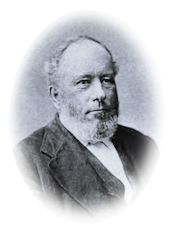
Warning
The following diary entry contains wording that is offensive to many in the world of today. However, the entry is provided unedited for its historical content and context.
An Excursion.
June 29. Companies C and B, together with Capt. Schenck’s New York battery company as infantry, returned yesterday afternoon from an expedition across the Neuse river, having been gone three days. We crossed the river Thursday morning, the 26th, and started out on a reconnoissance, tour of observation, scout, raid or whatever else it might be called, Capt. Schenck in command. We penetrated into the country some four or five miles, coming out at a cross road. There in the shade of the woods we halted for rest and lunch. Put out a few pickets to prevent surprise, I should think they were out about twelve rods from the column, which made it comparatively safe. After a little time, and while we were having a kind of picnic, there was a stir among the pickets in the rear and it was reported they had made a capture. The authorities went out to see what was up, and soon returned with an old horse and cart containing a few bags of meal and driven by a couple of grown-up girls, or more properly speaking, young ladies. They were returning from mill and were pretty badly frightened on finding themselves prisoners of war. The officers behaved towards them with the utmost gallantry, assuring them that no harm should come to them. On these assurances they were soon comforted and seemed to regard it as rather a good joke. After holding them close prisoners of war about a couple of hours, they were paroled and allowed to go their way.
We resumed our march and about two miles farther on came out at another cross road. Here we left a few pickets and proceeding a mile or so farther, came out to Latham’s plantation. This is the finest [continue reading…]
Experience of a Confederate Chaplain
June 29, 2022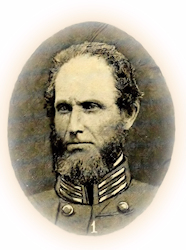
Sunday, June 29th
Pray in camp, and pray with them, and carry Capt. Drake to Richmond.
Write to Mrs. Tedder and Mrs. Hood, whose husbands had fallen.
“…there will be a regular attack made at daybreak to-morrow, if the present plan is followed out.”
June 29, 2022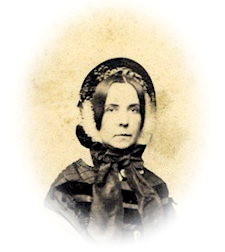
Among my papers I find next a letter written by my mother after an illness, during that awful time known as “The Seven Days Battle around Richmond.”
RICHMOND, June 25th, 1862.
” . . . I am getting a great deal better, and went out this afternoon to take a drive with your father. We stopped at Genl. Johnston’s to see how he was, and Mrs. Johnston came out and sat in the carriage with me. He is recovering rapidly, but will not be in the fight, which has in fact, begun. There has been very heavy firing all the afternoon, and there will be a regular attack made at daybreak to-morrow, if the present plan is followed out. I presume it will be, as Genl. Jackson is to move into position to-night, and of course, has to be supported. This was agreed upon last night. What has caused the fight this afternoon we do not know—but I trust it is all right. Jackson and his forces are to make the attack on the rear, and I trust it has all been so planned that McClellan will find himself glad enough to take the road away from, instead of on to Richmond.”
“Thursday 26th.
“I wrote you your father had acted as Aide to Genl. Longstreet. After we got home last evening, your father determined to go to Genl. Longstreet’s Headquarters, to see if there had been any change in the programme since the night before. He did not get back till nearly twelve o’clock—and at that time, the original plan was to be carried out—and he accordingly was off at four o’clock this morning. Strange to say, however, there seems to be an impression in town, that there has been no fighting to-day; not a gun has been heard, and everyone has been on the lookout for tidings. Halsey came in just before dinner and he has heard nothing of it—so I am afraid (I was going to say) that something has disconcerted the plan and I feel quite impatient for your father’s return. He said he would be back some time to-night.”
“Friday night, 27th.
“Yesterday afternoon I took a drive with Halsey and as soon as we got on Church Hill we heard the cannon and it seems the fight had begun at 3 o’clock in the afternoon instead of at daylight as it had been arranged. Your father got back after twelve last night. The news was all good as you have seen, I suppose. We had driven them from Mechanicsville and taken several batteries, etc. The battle was to be renewed this morning at daybreak, and accordingly, off went Papa, and I don’t expect to see him again until midnight or maybe to-morrow. Robert Nicholas, however, told me about sundown that he had left him well an hour or two before and that the Yankees had been driven back six miles. All the accounts we have yet received, altho’ meagre, yet agree that we are in hot pursuit and the enemy trying to get away. God grant that our victory may be complete! I will write more to-morrow when I can tell you what your father says. Good night.”
“Saturday, 28th.
“Your father did not come last night, dear L. I got a note from him early this morning. Thank God, he was unhurt! and remained to look up our wounded Texans. So far our victory has been brilliant, but oh! at what sacrifice of life! Poor Col. Marshall (1st Texas) is killed; so is Lieut. Col. Warwick. His poor mother’s heart will be broken, I fear. (He was an only child.) The Major of the Regiment, too, is dangerously wounded. Genl. Hood is not hurt or was not when your father wrote. God grant your father may be safe now! He expected to be up all night collecting and caring for our wounded. We have heard no cannon to-day and don’t know whether the fighting has continued or not. Cousin Lewis has just been here and says he hears 1,500 prisoners have already arrived, and among them 2 generals. There are all sorts of reports, one, that we have taken eighty officers above the rank of major. Your father thought the battle would be over to-day. I am almost afraid to believe it. Halsey has not been at all in the direction of the fight. He is guarding the batteries on the extreme right, and the contest has all been on the left. He has got his commission for 2nd Lieutenant—or rather, I have got it here for him.”
“Sunday, 29th.
“Another note from your dear father this morning. It was written last night, the other side of the Chickahominy at Headquarters. He says they were still driving the enemy before them and that operations would begin again at daybreak, and that he hoped it would be over to-day. I shall not expect him back until it is entirely concluded. He says the slaughter has been terrible, but our success glorious.”
Subjoined is a short note from the pen of Mrs. James Chesnut, the wife of Senator Chesnut, of South Carolina. Mrs. Chesnut was one of the most brilliant women of her time and as warmhearted as clever, as is shown by this little note. If she had written a volume the tragedy of which she told could not have been more graphically described.
“My dear friend,
“My heart is heavier to-day than it has been since this murderous war began. I daresay I have told you, over and over, as I always talk of what is uppermost, that my cronies in Columbia, my bosom friends, were Mrs. Preston, Mrs. McCord and Mrs. Izard. Captain Cheves McCord, only son of my friend, lies dead at a Mr. Meyers’ only a few doors below us. I did not know he was here. Mr. Chesnut had a letter from him yesterday dated Fredericksburg. He was wounded at the Second Manassas, two balls in his leg, and one in his head. Contrary to the advice of his doctors, he had rejoined his company, and this is the end. He died in convulsions from a pressure on the brain. His mother is expected by every train—poor thing—I could not sleep for thinking of her. She seemed to have but one thought in this world—’My Son.’ He is barely twenty-one—is married—his wife a beautiful girl—unfortunate and miserable and wretched is it all!
“. . . I will try to see you as soon as possible, but I will not, as I had hoped, take the box with you. This unhappy boy, lying dead so near me, makes the thought of theatres hateful to me just now. . . . I feel you are too true hearted a mother not to sympathize.
“Your friend, M. B. C.”
Journal of Surgeon Alfred L. Castleman.
June 29, 2022
29th.–’Tis the Sabbath–the appointed day of rest. To us how little of rest, of quiet, either to mind or body, it has brought! After the fatigues of the last three days and nights, our army lay last night on its arms, and this morning, at 3 o’clock, without breakfast, we were on the march, and as the first light of day revealed to us the immense heaps of commissary stores abandoned by the road, the truth that we were stealing away could no longer be concealed. The burning of these stores would disclose the fact to the enemy, and they were therefore left to fall into their hands. Are we then to give up all the anticipated pride of a triumphal march into Richmond? Must we hang our harps upon the willows, and forego the paeans which we were to sing here on the downfall of the Rebellion? Must we abandon the remains of the thousands on thousands of our comrades, who have perished here in the ditches, unhonored and unknown, without having been permitted to strike a soldier’s blow for government against anarchy? There is a retribution for some one. Till now this want of efficiency has been attributed to the powers at Washington. At present much of the blame is being laid at the door of our Commander-in-Chief, and I fear he deserves it. He has certainly committed many errors. His vast army, the best of modern times, has accomplished nothing. Early in the day it became evident to us that the watchful enemy was aware of our movements and was on our track, and everything of value was now destroyed. Runners were sent ahead to dam up the little streams near ammunition depots, to wet the powder and to drown the thousands of boxes of cartridges there deposited. Thousand on thousands of new muskets, of Springfield and of Sharp’s rifles, were bent and broken over logs and stones. Barrels containing whisky, molasses, sugar, were broken in, bridges destroyed, and locomotives blown up. Delayed by work like this, by marching and by countermarching to protect our long transportation trains, 4 o’clock P. M. found us only about four miles from where we had started. For thirteen hours we had marched, after a night of watching, and the men had not yet had their breakfasts. On our arrival at Savage’s Station we found the large building crowded with the wounded of the battles of the two days previous. Hundreds of tents were pitched around, from all of which came the groans of the sufferers, and the yard was filled with our poor mutilated men, with an army of surgeons and nurses moving amongst them. As we left this Station the booming of cannon in our rear told us a that this day, too, must have its fight. In the terrible heat of the day we moved on. We had not, however, proceeded more than a mile when we were overtaken by couriers calling us back to reinforce the rear, which was now preparing to engage the pursuing enemy. Back we marched. On again reaching Savage Station we found two immense lines of battle nearing for the conflict. We had a long line of batteries in position just in the edge of a wood fronting an extended plain over which the enemy was advancing. In rear of artillery our infantry lay in ambush. Our artillery was the coveted prize, and over the level plain came rushing on the long lines of the enemy at a full charge of bayonets. Our batteries had anticipated this, and were charged with grape and cannister, which they withheld till the mass came within easy range, then belching forth, their iron hail, the whole front was absolutely shot away. For a moment the enemy recoiled, but it was momentary as the recoil of the ocean’s wave as it breaks on the impending rock, then down they came again, but again belched forth the angry cannon, and again a line was swept away. But to this immense host of enthusiastic pursuers numbers were nothing, and a third time it came rushing on. They were now too near for our artillery to be effective, but at the moment up rose in its rear our long line of ambushed infantry, and the setting sun was saluted by the roar of a hundred thousand muskets. Again reeled the staggering foe, and “forward, charge!” and the battle of the 29th–the battle of Savage Station–was ended. The enemy were repulsed with immense loss, and we resumed the march, leaving the dead and wounded and our large hospital filled to overflowing in the hands of the enemy. All night we marched, stopping at 2 in the morning, and after a march of twenty-three hours, almost without food, rested for about three hours.
“People here are very indignant about our taking all their provisions away from them…”–Army Life of an Illinois Soldier, Charles Wright Wills.
June 29, 2022
Headquarters 1st Brig. Cav. Army of the Miss.,
Rienzi, Miss., June 29, 1862.
What the deuce this army is trying to do, I cannot guess. Buell’s corps moved off in an easterly direction two weeks since. Grant’s is, I think, between Corinth and Memphis, and the headquarters of Pope is about four miles south of Corinth, while his army is scattered for 75 miles west of here. The left wing, Plummer’s and Jeff C. Davis’ divisions moved through here yesterday, bound for Holly Springs, 60 miles due west. General Ashboth’s reserve division, stationed here, have thrown up quite extensive works, fronting the enemy, who are not in any force, within 75 miles of us. Our cavalry division is doing the outpost duty on a line 40 miles long, running east and west, and about 20 miles south of Corinth, with videttes out eight or ten miles further, and scouting parties go 15 miles below the videttes. We are losing about two men a day skirmishing. I noticed a statement in the papers that 20,000 new-made graves could be seen between Corinth and the Tennessees, caused by the swamp miasmas, etc., during our approaching the enemy. We don’t believe that there have been 400 deaths from disease since the battle of Shiloh, and 250 will cover the number of deaths from wounds received since that fight. You know there have been an immense number of sick men furloughed, but that was to satisfy the State governnors more than necessity. For instance, John Shriner went home on sick furlough and you know his condition. There were thousands of such cases. I think the health of our army never was better than now. I notice that our Illinois troops stand this climate very much better than the men from Michigan and Iowa. Do not think we have more than one-third the sickness in our regiment that the troops from the last named States have. There is a prospect of our brigade’s being ordered to Ripley this week. I am well satisfied here, but have no doubt will flourish equally well there. They charge outrageous prices for eatables throughout the country. Half-grown chickens 25 cents each, eggs 25 cents per dozen, buttermilk 20 cents per quart, etc. We keep a cow for our headquarters, though, that supplies us with milk, and we have six hens that lay as many eggs every day, and my colored boy plays sharp and buys new potatoes, peas, beans, etc., for half what I can, on the strength of his chumming it with colored folks of the farms. There was a regiment raised in this country that are now flourishing in Camp Douglas. A lady played the piano and sang for me last night that has a husband and brother residing in said camp. Mourning goods are quite fashionable here, and I see limping around town several that lost a limb, each, in some of the early battles. There are a few that I have met who were taken prisoners by our troops, one of them at Manassas, and paroled. Deserters come in yet every day. An intelligent man that belonged to an Arkansas regiment came in yesterday. He says that he thinks the main body of the Southern Army started for East Tennessee, via Chattanooga the day after he left them. Breckenridge’s brigade has gone to Vicksburg, etc. I would like to send you some of the late orders issued by Rosecrans, if it were not so much trouble to copy them, in relation to police of camp and discipline. He looks after the health of men more than any general I have served under [continue reading…]
Rebel War Clerk
June 28, 2022
JUNE 28th.—The President publishes a dispatch from Lee, announcing a victory! The enemy has been driven from all his intrenchments, losing many batteries.
Yesterday the President’s life was saved by Lee. Every day he rides out near the battle-field, in citizen’s dress, marking the fluctuations of the conflict, but assuming no direction of affairs in the field. Gen. Lee, however, is ever apprised of his position; and once, when the enemy were about to point one of their most powerful batteries in the direction of a certain farm-house occupied by the President, Lee sent a courier in haste to inform him of it. No sooner had the President escaped than a storm of shot and shell riddled the house.
Some of the people still think that their military President is on the field directing every important movement in person. A gentleman told me to-day, that he met the President yesterday, and the day before, alone, in the lanes and orchards, near the battle-field. He issued no orders; but awaited results like the rest of us, praying fervently for abundant success.
To-day some of our streets are crammed with thousands of bluejackets–Yankee prisoners. There are many field officers, and among them several generals.
General Reynolds, who surrendered with his brigade, was thus accosted by one of our functionaries, who knew him before the war began:
“General, this is in accordance with McClellan’s prediction; you are in Richmond.”
“Yes, sir,” responded the general, in bitterness; ” and d–n me, if it is not precisely in the manner I anticipated.”
“Where is McClellan, general ?”
“I know not exactly; his movements have been so frequent of late. But I think it probable he too may be here before night!”
“I doubt that,” said his fellow-prisoner, Gen. McCall; “beware of your left wing! Who commands there?”
“Gen. Jackson.”
“Stonewall Jackson? Is he in this fight? Was it really Jackson making mince-meat of our right? Then your left wing is safe!”
Four or five thousand prisoners have arrived.
A Confederate Girl’s Diary
June 28, 2022
June 28th.
I am afraid I shall be nervous when the moment of the bombardment actually arrives. This suspense is not calculated to soothe one’s nerves. A few moments since, a salute was fired in honor of General Butler’s arrival, when women, children, and servants rushed to the front of the houses, confident of a repetition of the shelling which occurred a month ago to-day. The children have not forgotten the scene, for they all actually howled with fear. Poor little Sarah stopped her screams to say, “Mother, don’t you wish we was dogs ‘stead o’ white folks?” in such piteous accents that we had to laugh. Don’t I wish I was a dog! Sarah is right. I don’t know if I showed my uneasiness a while ago, but certainly my heart has hardly yet ceased beating rather rapidly. If I knew what moment to expect the stampede, I would not mind; but this way – to expect it every instant – it is too much! Again, if I knew where we could go for refuge from the shells! –
A window banging unexpectedly just then gave me a curious twinge; not that I thought it Was the signal, oh, dear, no! I just thought – what, I wonder? Pshaw “Picayune Butler’s coming, coming” has upset my nervous system. He interrupted me in the middle of my arithmetic; and I have not the energy to resume my studies. I shall try what effect an hour’s practice will have on my spirits, and will see that I have a pair of clean stockings in my stampede sack, and that the fastenings of my “running-bag” are safe. Though if I expect to take either, I should keep in harness constantly. How long, O Lord! how long?